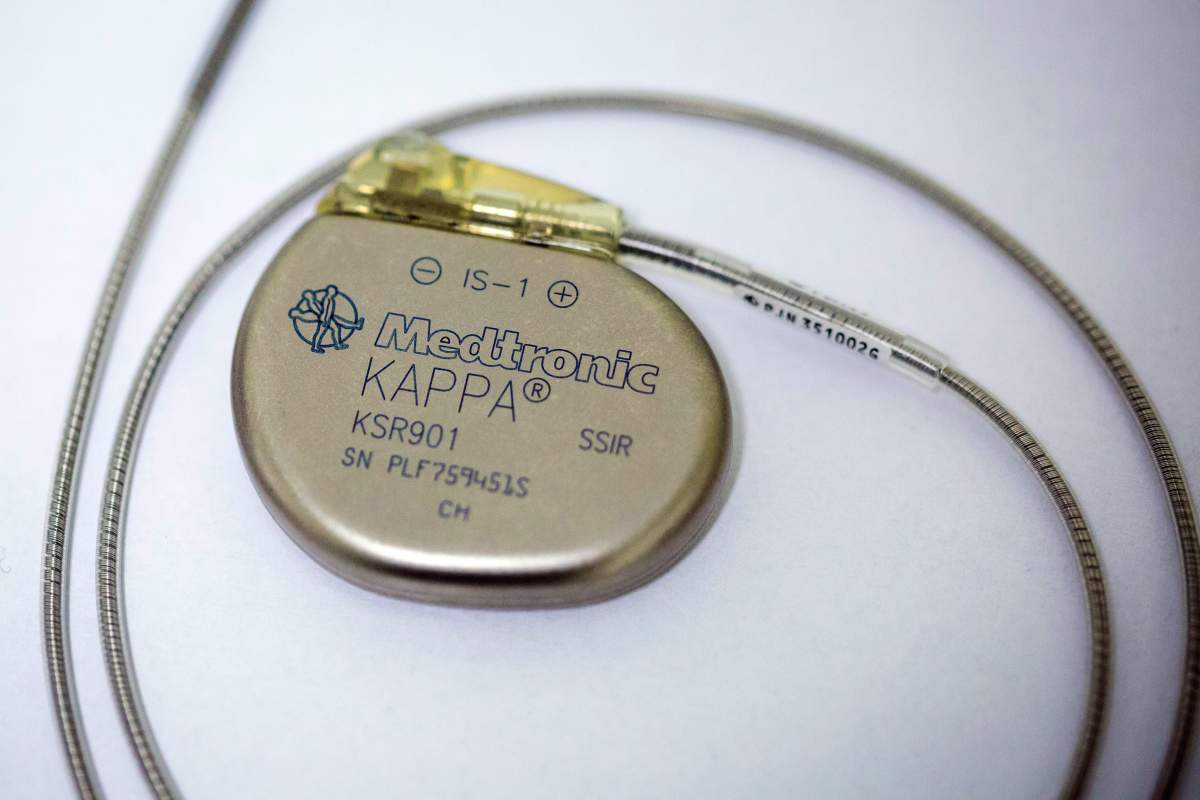Health Canada has announced an action plan to improve the safety of medical devices such as pacemakers and breast implants following media reports of Canadians receiving risky products pulled from the market by some other countries.

A recent Toronto Star-CBC investigation found that at least 1,400 Canadians have died since 2008 in incidents involving various types of medical devices, while another 14,000 reported injuries over that 10-year period.
WATCH: ALifesaving drug approved for children with a degenerative illness

The plan released Thursday includes a number of steps aimed at boosting the safety, quality and efficacy of medical devices, including improving how the products get onto the market; strengthening follow-up monitoring of those already in use; and providing more information about devices to patients.
Part of that plan involves hiring an additional eight inspectors and two analysts by March and raising the number of inspections of foreign medical device manufacturers, from 80 to 95, by April.

Get weekly health news
WATCH: Health Minister says declaring a public health emergency wouldn’t help Opioid crisis

The strategy also involves putting in place regulations that will mandate that hospitals across the country report serious adverse incidents related to medical devices to Health Canada, Dr. Supriya Sharma, the federal department’s chief medical adviser, told a media briefing from Ottawa.
“As part of the regulations, there will be prescribed timelines by which they have to report to Health Canada,” she explained. “And then we are looking at serious medical device incidents, so it’s a relatively short period of time by which they have to provide that information.”
The initiative will bring mandatory reporting “from zero to 776 hospitals,” Health Canada says in an online document outlining the plan.
However, that reporting requirement will not include private health clinics or long-term care facilities that also can provide medical devices to patients, because of the varying provincial and territorial definitions of what constitutes a hospital, Sharma said.
Adverse incidents are those serious enough to cause a person to be admitted to hospital or to have their hospital stay extended, for instance if a diabetic’s insulin pump were to malfunction.
“So even if people have had a procedure in a private facility or something in a long-term care facility and there is an incident that brings them into a hospital,” any problem with a device would be captured through the new reporting system mandated for those health-care institutions, she said.
Meanwhile, Health Canada is exploring the idea of expanding the scope of mandatory reporting of adverse incidents to private clinics and long-term care facilities, but any new regulations would have to follow consultations with the provinces and territories.
Currently, a program known as the Canadian Medical Device Sentinel Network covers more than 260 health-care facilities, which have voluntarily committed to report any adverse events experienced by patients related to the products.
“Health Canada will aim to expand this network to include facilities outside the hospital setting, including long-term care facilities and private clinics,” the online document says.
The plan also includes proposing draft regulations, by June, that would require manufacturers to notify Health Canada within 72 hours if foreign regulatory agencies issue a warning about serious risks related to a medical device.
Currently, information from clinical studies about medical devices is made available to the public only through Access to Information requests to the federal government. Health Canada plans to make that process easier by creating a web portal that will allow members of the public to directly search for information about various devices.







Comments